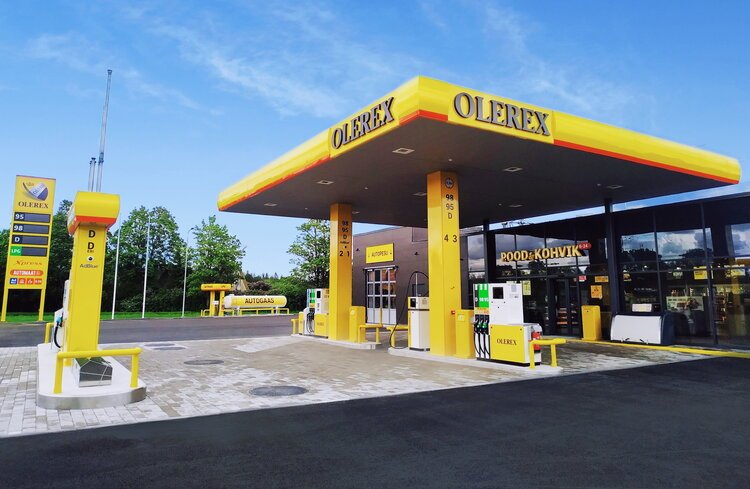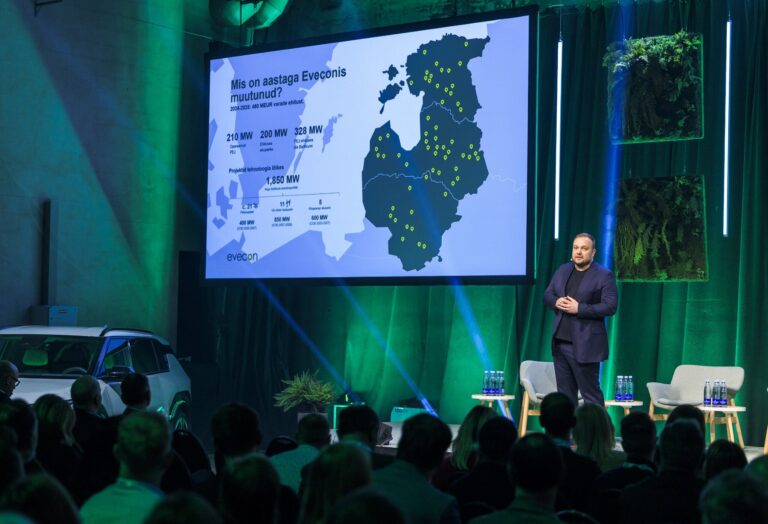The Estonian Environmental Board imposed a fine of eight million euros on fuel seller Olerex for repeatedly failing to fulfill the biofuel obligation.
The Environmental Board determined in misdemeanor proceedings that instead of fuel made from renewable sources, fossil fuel was directed to consumption.
“All fuel sellers must ensure that 7.5 percent of the liquid fuels directed to consumption are sustainably produced and that the amount of greenhouse gases emitted into the air is reduced. To meet these requirements, the fuel seller has several options, for example, they can introduce biogas used in transportation, involve solar or wind energy, or offer consumers second-generation biodiesel, or HVO, as an alternative to fossil oil-based diesel fuel,” Olav Avarsalu, deputy director-general for supervision at the Environmental Board, said.
HVO, or paraffinic diesel fuel, is a liquid fuel made from renewable sources, either vegetable oils or waste, which has similar or even more engine-friendly properties than fossil diesel fuel and reduces carbon emissions by up to 90 percent.
“The misdemeanor proceedings confirmed the suspicion that Olerex has fulfilled less than 2 percent of the sustainable fuel share obligation in 2022 and that instead of diesel fuel made from renewable sources, more than 10 million liters of fossil diesel fuel have been directed to consumption,” Avarsalu said.
The Environmental Board has punished Olerex for not fulfilling the biofuel obligation in the past as well — as of the end of the year in 2021, the fuel seller narrowly did not fulfill the biofuel share obligation, by a fraction of a percent. The Environmental Board then imposed a fine of 12,000 euros for the first violation. However, in 2022, more than 80 percent of the required biofuel was not supplied.
“The introduction of renewable energy sources is an important step in curbing climate change, so this is not a minor violation. We also need to make sure that the violation does not pay off financially. Also taking into account that this is a repeated violation, the Environmental Board imposed on Olerex the largest fine in the history of the Environmental Board — eight million euros,” Avarsalu said.
“We can see that consistent and careful control has also brought good results: in the view of 2023, Olerex is fulfilling its biofuel obligation. In many filling stations, the consumer can choose high-quality HVO produced from plant materials or waste instead of fossil diesel fuel and thus also show their attitude towards environmental protection,” he added.
A criminal investigation is still underway, in the course of which the suspicion that Olerex has knowingly submitted false information to the Tax and Customs Board about the fuel brought into the country is being verified.
The proceedings are being carried out by the Central Criminal Police and the Environmental Board and it is being led by the South District Prosecutor’s Office. The pre-trial proceedings are nearing the end and the file will be sent to the prosecutor’s office in the near future.
Source: BNS
(Reproduction of BNS information in mass media and other websites without written consent of BNS is prohibited.)


















